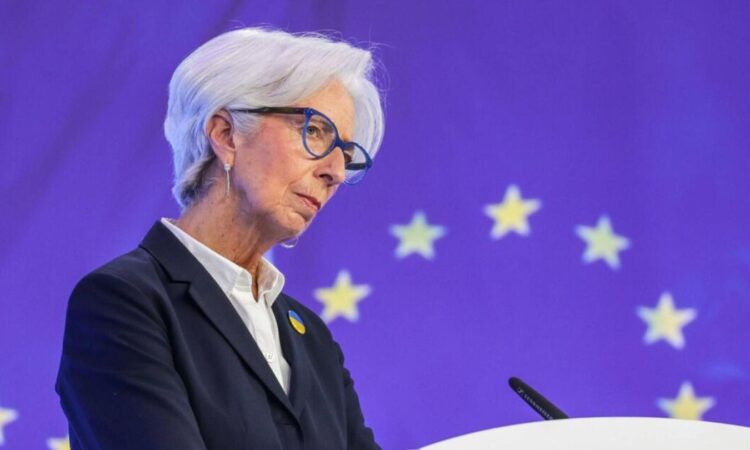
Since July last year, the ECB has aggressively increased its lending rates taking the base rate from 0% to 4.25% this summer. The next meeting of the ECB Council is on Thursday with opinion divided as to whether the ECB will continue to raise rates. There are growing views in the EU that rates should not rise.
Personal and business customers hope the summer break for central bankers will let them see that the impact of the rise of 4.25% in a year is having in real terms.
The eurozone PMI (Purchasing Managers Index) for August fell to 47%, below the 50 no-change reading for a third consecutive month indicating that the economy is contracting.
In Germany, Europe’s largest economy, firms remain pessimistic about the outlook as rising interest rates, customer uncertainty and high inflation continue to weigh on demand. In France, Europe’s second largest economy, a contraction in activity is expected in the final quarter of this year.
The ECB’s Bank Lending Survey for the second quarter of this year revealed the sharpest decline in credit demand from European companies on record even larger than during the global financial crisis 2008 to 2009.

However, the central bank leaders in Europe, the US, Britain, and Japan met in the US in late June and asserted that they were not backing down from their steep interest rate increases, pointing to inflation being more persistent but downplaying fears of recession.
Let us examine the impact of a further rate rise of 0.25% on Thursday. All tracker mortgage holders will see their rates rise within one month and which bring the average tracker mortgage rate to 5.65%. The average tracker mortgage balance outstanding is €133,000 with an 11-year term remaining.
Therefore, from July last year to this month, monthly mortgage repayments have increased by €280 per month or €3,360 over the year.
While banks have not passed the full rate increases onto their variable- or fixed- rate customers, these customers have seen rates increase by 2% on average. The average mortgage for new customers is €300,000 and these customers will have seen a rise of €320 a month or €3,840 in a year.
We have 72,000 mortgage customers coming off fixed rates by year end and they will face similar increases in their monthly repayments.
The impact of these rate increases is beginning to show in the level of arrears. The last figures from the Central Bank for the first quarter in 2023 show those in arrears from 0-90 days, have increased by 3,639 since quarter one, last year.
We must note further rate rises have happened since March and every effort must be made to assist those in early term arrears. We know that once you put alternative repayment plans in play for early term arrears, it will prevent a subsequent rise in longer-term arrears.
In a welcome move bank and non-bank lenders last week agreed a new set of criteria designed to provide guidance to distressed mortgage holders whose loans are managed by credit servicing firms on how they could switch their loan to another provider at much reduced interest rates. There are 80,000 mortgage holders whose mortgage is managed by credit-servicing agents, 50,000 of whom may have an opportunity to switch while 30,000 have an impaired credit rating and will not be able to switch for some time.
This is a timely reminder that early engagement with your lender is key where you are having trouble meeting your mortgage repayments.
Investors have proven hard to persuade that another move is imminent. Dutch official Klaas Knot, in an interview last Wednesday, suggested that markets were maybe underestimating the prospect of a hike, according to Bloomberg.
The decision will come down to if inflation (still stuck above 5) can definitively slow without more tightening, given increasing evidence of the eurozone economy’s weakness and the lag with which policy moves have an impact.
Michael Dowling is head of Dowling Financial





